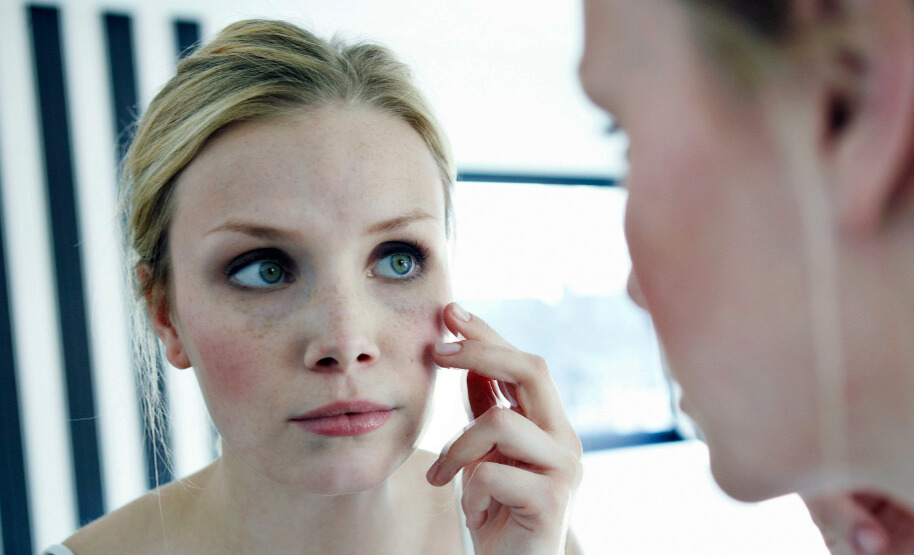Discover how Myofascial massage can relieve facial tension, reduce stress, and rejuvenate your skin, promoting a smoother, healthier appearance.
Table of Contents
In today’s fast-paced world, stress is often an unavoidable part of life, and it can manifest in surprising ways. One such way is through facial tension—tight, contracted muscles in the face that can lead to discomfort, headaches, and even changes in facial appearance over time. A highly effective solution for relieving this tension is Myofascial massage, a specialised technique that targets the fascia and muscles to restore balance and relaxation. In this article, we explore how Myofascial massage can help relieve facial tension and why it’s crucial for your overall well-being.
What is Facial Tension?
Facial tension refers to the contraction or tightness of facial muscles, often due to prolonged stress. This tension can lead to a range of symptoms, including tingling, facial flushing, headaches, and even changes in facial proportions. It occurs as a natural response to stress, whether emotional or physical. Over time, tight muscles in the face can lose their ability to glide smoothly, resulting in stiffness, jerky movements, and a less youthful appearance.
Symptoms of facial tension may include:
- Tingling sensations or numbness
- Reddening of the face
- Lip damage from biting or dry, cracked lips
- Persistent headaches, particularly tension headaches
If left untreated, these symptoms can escalate, causing chronic discomfort and impacting both your physical and emotional well-being. However, Myofascial massage offers an effective, non-invasive solution to restore facial relaxation and harmony.
How Stress Affects Facial Muscles

When you’re stressed, your body’s “fight or flight” response kicks in, releasing stress hormones that cause your muscles to contract. In the case of facial tension, these contractions can become chronic, with your facial muscles staying in a partially contracted state even after the initial stressor has passed. Over time, this tightness changes the smooth, wave-like shape of muscles into shorter, straighter forms, pushing fat up toward the surface and leading to puffiness and distorted expressions.
The effects of prolonged facial tension can include:
- Swelling and changes in facial proportions
- A rough or uneven appearance due to jerky facial movements
- Loss of natural facial contours, making you look older or more stressed than you feel
Addressing facial tension is key to preventing these changes from becoming permanent. Myofascial massage plays an essential role in reversing these effects by relaxing the muscles and promoting natural, healthy movement.
Soothing Facial Tightness: Myofascial Massage
Myofascial massage works by targeting the fascia, a web-like tissue that connects and supports your muscles, nerves, and blood vessels. When stress causes your facial muscles to tighten, the fascia can become restricted, leading to discomfort and impaired circulation. This is where Myofascial massage comes in—by applying gentle, sustained pressure, a skilled practitioner can release these restrictions, restore proper blood flow, and bring the muscles back to their natural state.
Here’s how Myofascial massage helps to relieve facial tension:
- Restores Muscle Shape: By releasing the tightness in facial muscles, Myofascial massage allows the muscles to return to their natural, wave-like form. This improves the smoothness of facial movements and helps to restore the face’s natural contours.
- Improves Circulation: The improved blood flow helps deliver essential nutrients to your skin, boosting cell renewal and promoting healthier, more vibrant skin. This can reduce the appearance of wrinkles and support overall skin rejuvenation.
- Releases Emotional Stress: Beyond physical benefits, Myofascial massage can also help reduce emotional stress, as relaxing the facial muscles has a direct calming effect on the nervous system. This can improve your mood, making you feel as refreshed on the inside as you look on the outside.
- Lymphatic Drainage: Tension in the facial muscles can block proper lymph drainage, leading to puffiness and swelling. Myofascial massage helps drain lymphatic fluid, reducing swelling and promoting a more toned appearance.
Facial Tension and Headaches
A common side effect of facial tension is tension headaches, which are triggered by stress and characterized by dull, aching pain or a feeling of tightness across the forehead and head. These headaches can range from episodic to chronic, with the latter lasting for hours, or even days, and severely impacting quality of life.
Myofascial massage can offer significant relief from tension headaches by:
- Releasing the contracted muscles that are causing the pain
- Reducing pressure in the neck, shoulders, and face
- Encouraging deep relaxation and reducing the build-up of stress that leads to headaches
By incorporating regular Myofascial massage into your wellness routine, you can prevent tension headaches from becoming a constant nuisance and promote overall facial relaxation.
Key Takeaway
If facial tension is affecting your comfort, appearance, or overall well-being, Myofascial massage offers a natural, effective solution. By releasing muscle tightness, improving circulation, and promoting relaxation, this specialised massage technique helps restore balance to your facial muscles and alleviates the discomfort associated with tension. Whether you’re looking to smooth out wrinkles, reduce stress, or prevent tension headaches, Myofascial massage can support a healthier, more relaxed you.
References:
- Harvard Health Publishing – “The Impact of Chronic Stress on Your Muscles and Skin”
- PainScience.com – “Myofascial Pain Syndrome and Trigger Points”
- National Association of Myofascial Trigger Point Therapists (NAMTPT) – “The Role of Myofascial Therapy in Managing Stress and Tension”.
- Dermatology Times – “How Facial Tension Affects Skin Aging and Facial Contours”.
- WebMD – “Tension Headaches: Causes, Symptoms, and Relief”
- The Journal of Bodywork and Movement Therapies – “Effectiveness of Myofascial Release Techniques on Muscle Tightness and Pain Relief”
- Verywell Mind – “How Stress and Anxiety Lead to Muscle Tension”
- American Institute of Stress (AIS) – “Stress Effects on the Body: Facial Tension and Relaxation Techniques”